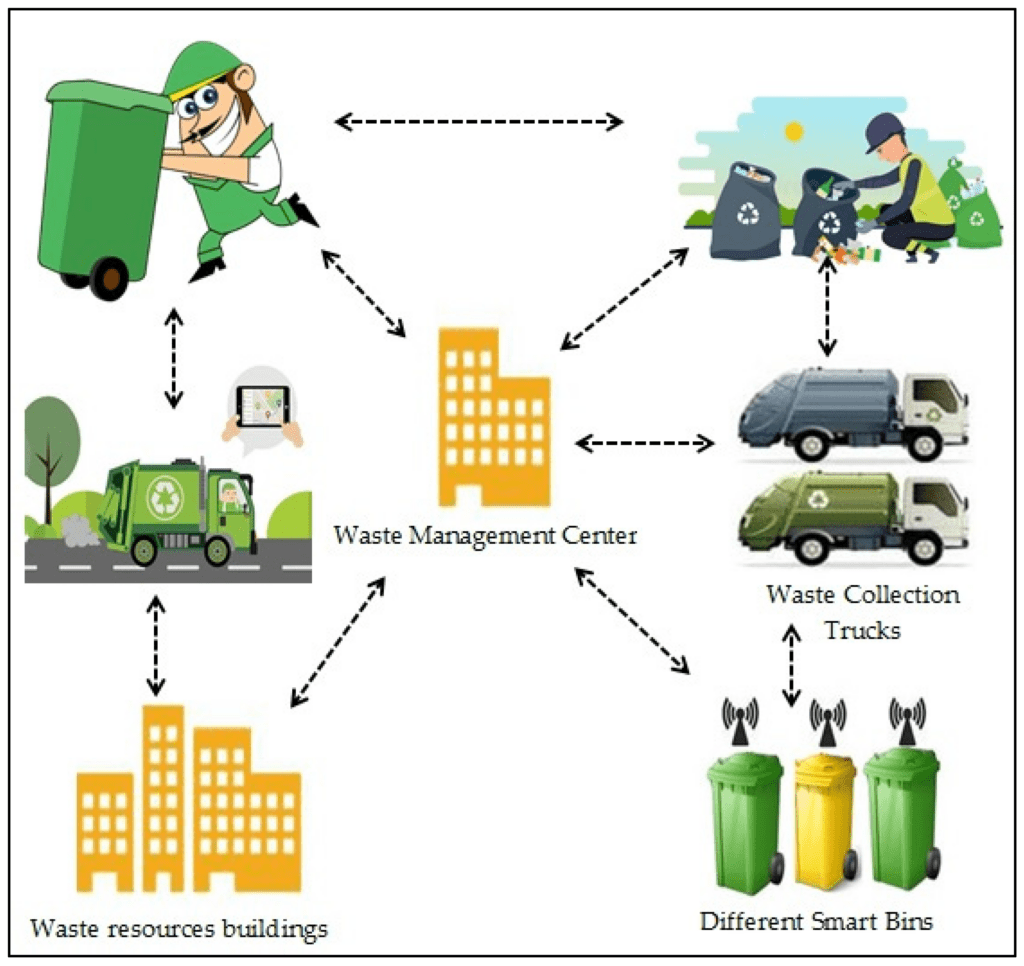Introduction
Eviction cleanout is a crucial step in the property management process. It’s the act of clearing out all items left behind by evicted tenants, ensuring the rental property is ready for the next occupant. This guide will delve deep into the intricacies of the eviction cleanout process, offering insights and tips for landlords, property managers, and anyone involved in the property rental business.
The Importance of Eviction Clean Out for Landlords and Property Managers
- Property Value Maintenance: A clean property retains its value. Eviction cleanout services ensure that the property is free of trash, broken furniture, and other junk, which can degrade its worth.
- Attracting New Tenants: A move-in ready property is more appealing to potential tenants. A thorough eviction cleanup ensures the rental property is in the best possible condition.
- Avoiding Legal Hassles: State laws often have specific guidelines about handling property left behind by an evicted tenant. Proper eviction cleanout procedures ensure landlords and property managers stay compliant.
- Recouping Lost Rent: A clean property can be rented out faster, allowing landlords to start recouping lost rental income.
The Challenges Faced During the Eviction Clean Out Process
Dealing with Personal Property: It’s not uncommon for evicted tenants to leave personal property behind. Landlords are often obligated to store these items for a certain period, depending on state laws, before they can dispose of them. Potential Damage to the Property: Evicted renters might leave the property in disarray. Repairs might be needed, from fixing broken appliances to replacing a soiled carpet. Navigating Legalities: The eviction process steps, tenant rights, and property obligations can be complex. Landlords and property managers must be aware of eviction laws and tenant eviction rights to avoid legal disputes. Cost Implications: Eviction cleanout costs can be significant, especially if professional eviction cleanout services or rental dumpsters are required. Landlords must factor in these costs when managing their property rental business.
1. Understanding Eviction Junk Removal



The Aftermath of Evictions: Dealing with Piles of Trash and Valuable Belongings
After the eviction process, landlords and property managers often find themselves facing a daunting task: sorting through piles of trash, broken furniture, and sometimes even valuable personal property left behind by evicted tenants. It’s not just about trash removal; it’s about understanding the difference between what’s junk and what’s valuable.
- Recognizing Valuables: Amidst the clutter, you might find items left that hold monetary or sentimental value. These could range from electronics to jewelry.
- Handling Junk: From soiled carpets to damaged appliances, evicted renters often leave behind items that require disposal. Having a garbage removal plan is essential.
- Safety Concerns: Piles of trash can attract vermin or become a breeding ground for mold. It’s crucial to address these issues promptly.
The Potential Legal Implications of Mishandling Tenant Belongings
State laws and tenant rights play a significant role in the eviction cleanout process. Mishandling tenant belongings can lead to legal hassles for the property owner.
- Understanding Tenants’ Rights: In many jurisdictions, landlords are obligated to store personal property for a specific period, allowing tenants to collect their belongings.
- Notification: Always inform the tenant in writing if you find valuable items. This not only fulfills legal obligations but also builds trust.
- Avoiding Automatic Liens: Mishandling items can lead to automatic liens on the property, further complicating the eviction process.
The Importance of Distinguishing Between Trash and Valuable Items
Every item left behind post-eviction tells a story. While it’s easy to label everything as junk, it’s essential to distinguish between trash and valuables.
- Assessing Items: Before disposing of anything, take a moment to assess its condition and potential value.
- Document Everything: Photograph items, especially valuables. This documentation can be invaluable in case of disputes or if the tenant returns to reclaim belongings.
- Seek Expertise: If unsure about an item’s value, consult with professionals or local law enforcement to ensure you’re making informed decisions.
2. The Role of Eviction Removal Services
The Benefits of Hiring Professional Eviction Cleanout Services
Professional eviction cleanout services offer a streamlined approach to the daunting task of eviction cleanup, ensuring the property is move-in ready.
- Efficiency: Professionals have the tools and expertise to handle large-scale cleanouts quickly.
- Legal Compliance: These services are well-versed in state laws and tenant rights, ensuring you remain compliant throughout the eviction cleanout process.
- Cost-Effective: While there’s an upfront cost, hiring professionals can save landlords from potential legal fees and the expenses of prolonged property vacancies.
How Experts Can Transform a Cluttered Rental Property into a Move-In Ready Space



The magic touch of professional services can turn a property in disarray into a desirable rental space.
- Deep Cleaning: Beyond junk removal, these services often offer deep cleaning, addressing issues like soiled carpets or damaged walls.
- Repairs: Some eviction cleanout services collaborate with repair professionals, ensuring any damage to the property is promptly addressed.
- Waste Management: With connections to waste disposal units and rental dumpsters, professionals ensure trash is disposed of correctly.
The Streamlined Process Adopted by Professionals to Ensure Efficient and Thorough Cleaning
Professional eviction cleanout services have honed their processes to perfection, ensuring every property is left in impeccable condition.
- Assessment: Before diving in, professionals assess the property’s condition, identifying potential challenges and creating a tailored eviction cleanout plan.
- Item Categorization: Items are sorted into categories like trash, recyclables, donations, and valuables. This systematic approach ensures nothing is overlooked.
- Final Inspection: Once the cleaning is complete, professionals conduct a thorough inspection, ensuring the property meets all standards and is ready for its next tenant.
3. Comprehensive Eviction Cleaning Services
The Necessity of a Garbage Removal Plan: Differentiating Between Reclaimable Items and Trash



When undertaking an eviction clean out, it’s essential to have a well-thought-out garbage removal plan. This ensures that the rental property is cleaned efficiently and is move-in ready for the next tenant.
- Sorting and Categorizing: Begin by sorting items into categories such as trash, recyclables, donations, and valuables. This systematic approach ensures that reclaimable items aren’t mistakenly discarded.
- Professional Touch: Consider hiring a professional eviction cleanout service. They bring expertise in differentiating between trash and valuable items, ensuring nothing of value is overlooked.
- Dealing with Junk: From broken furniture to soiled carpets, ensure that junk is disposed of correctly, either through trash removal services or rental dumpsters.
The Potential of Recouping Lost Income from Left-Behind Tenant Properties
Left-behind items can sometimes be a silver lining in the eviction process, offering landlords an opportunity to recoup some lost income.
- Assessing Value: Before disposing of any item, assess its potential resale value. Appliances, furniture, and electronics can sometimes be sold or repurposed.
- Auction or Sale: Some landlords opt to hold auctions for valuable items left behind, turning a challenging situation into a revenue-generating opportunity.
- Donations: If selling isn’t an option, consider donating items. Not only is this a charitable act, but it can also offer tax benefits.
The Legalities Surrounding Property Claims and the Importance of Understanding Local Laws
Eviction clean out is not just about cleaning; it’s also about understanding and adhering to local laws and regulations.
- Tenant Rights: Many jurisdictions have specific guidelines about how long landlords are obligated to store personal property left behind by evicted tenants.
- Documentation: Always document items left behind, especially valuables. This can be crucial for legal reasons and in case of tenant disputes.
- Local Regulations: Stay informed about local regulations. Some cities require specific procedures for trash removal and handling items left by evicted tenants.
4. Legal Considerations in Eviction Cleanouts
The Rights of Evicted Tenants and the Obligations of Landlords
Understanding the balance between tenant rights and landlord obligations is crucial during the eviction cleanout process.
- Storage Obligations: Depending on state laws, landlords might be required to store left-behind items for a specific period, allowing tenants an opportunity to reclaim their belongings.
- Property Damage: If the evicted renters caused damage to the property, landlords might have the right to use security deposits for repairs. However, this often requires notifying the tenant and providing an itemized list of damages.
- Eviction Notice: Always ensure that the eviction notice was served correctly and that all legal procedures were followed to avoid potential legal hassles.
The Importance of Notifying Tenants About Their Left-Behind Belongings
Communication is key. Always keep the lines of communication open with evicted tenants regarding their belongings.
- Written Notification: Inform tenants in writing about any personal property they’ve left behind, detailing how they can reclaim it and any associated storage fees.
- Setting Deadlines: Clearly communicate any deadlines by which tenants need to collect their belongings before they’re disposed of or sold.
- Document Everything: Keep copies of all communications for legal reasons and to protect yourself in case of disputes.
Legal Requirements for Holding and Disposing of Tenant Properties
Landlords must navigate the legal landscape carefully when dealing with tenant properties post-eviction.
- State Laws: Familiarize yourself with state laws regarding how long you’re required to hold onto tenant belongings and the proper procedures for disposal.
- Auctioning Items: If you choose to auction off left-behind items, ensure you’re compliant with local regulations and have provided the necessary notifications to the tenant.
- Disposal: When disposing of items, especially large quantities of trash or broken furniture, ensure you’re following local waste disposal guidelines.
5. Making Professional Arrangements
The Advantages of Hiring a Professional Eviction Cleanout Service
Navigating the aftermath of an eviction can be overwhelming for landlords. Here’s why hiring a professional eviction cleanout service can be a game-changer:
- Efficiency: Professionals have the tools and expertise to handle large-scale cleanouts quickly, ensuring the rental property is ready for the next tenant in no time.
- Expertise: From distinguishing between junk and valuables to understanding the nuances of state laws, a professional touch ensures every aspect of the eviction cleanout process is handled with precision.
- Cost-Effectiveness: While there’s an upfront cost, hiring professionals can save landlords from potential legal fees, prolonged property vacancies, and the hassle of coordinating various services like dumpster rental and repairs.
Inventorying Items for Potential Claims Against Owed Money
When tenants leave items behind, landlords can sometimes use these to offset owed money. Here’s how:
- Documentation: Photograph and list all items left behind, especially valuables. This documentation can be crucial for legal reasons and in case of disputes.
- Valuation: Assess the potential resale value of items. This can be used to offset any unpaid rent or property damage costs.
- Legal Consultation: Before selling or auctioning items, consult with local law enforcement or legal counsel to ensure you’re compliant with local regulations.
Ensuring Compliance with Local Laws and Avoiding Potential Lawsuits
The eviction cleanout process is fraught with legal intricacies. Ensuring compliance is crucial to avoid potential lawsuits.
- Stay Informed: Familiarize yourself with local eviction laws, tenants’ rights, and property obligations.
- Communication: Always notify the tenant about their left-behind belongings, detailing how they can reclaim them and any associated storage fees.
- Seek Legal Counsel: If in doubt, consult with a legal expert to ensure you’re making informed decisions and adhering to all local regulations.
Conclusion
The Significance of a Thorough Eviction Clean Out for the Reputation of Landlords and the Well-Being of Future Tenants
A thorough eviction cleanout is not just about preparing the property for the next tenant; it’s about upholding the landlord’s reputation and ensuring the well-being of future tenants. A clean, well-maintained property attracts responsible tenants and fosters a positive landlord-tenant relationship.
Encouraging Landlords to Stay Informed, Act Responsibly, and Consider Professional Assistance for the Best Outcomes
The eviction cleanout process is complex, but with the right information, responsible actions, and, if needed, professional assistance, landlords can navigate it efficiently, ensuring the best outcomes for all parties involved.
6. FAQ
Q1: What items are typically left behind by evicted tenants?
A: Evicted tenants often leave behind a mix of items, ranging from personal belongings like clothes and electronics to furniture, appliances, and sometimes even junk or trash.
Q2: How long should landlords hold onto items of value after an eviction?
A: This varies by jurisdiction, but many state laws require landlords to store personal property left behind by evicted tenants for a specific period, often between 15 to 30 days, before they can dispose of or sell them.
Q3: What are the legal implications of not notifying an evicted tenant about their belongings?
A: Failing to notify tenants about their left-behind belongings can lead to legal disputes, potential lawsuits, and even automatic liens on the property. It’s crucial to follow local regulations and ensure proper communication.
Q4: How can landlords recoup lost income from left-behind properties?
A: Landlords can sometimes offset owed money by selling or auctioning valuable items left behind, after notifying the tenant and adhering to local regulations. Donations can also offer tax benefits.
Q5: Why is it essential to hire a professional eviction cleanout service?
A: A professional eviction cleanout service ensures efficiency, legal compliance, and a thorough cleaning process, saving landlords time, potential legal fees, and the hassle of coordinating various tasks.
